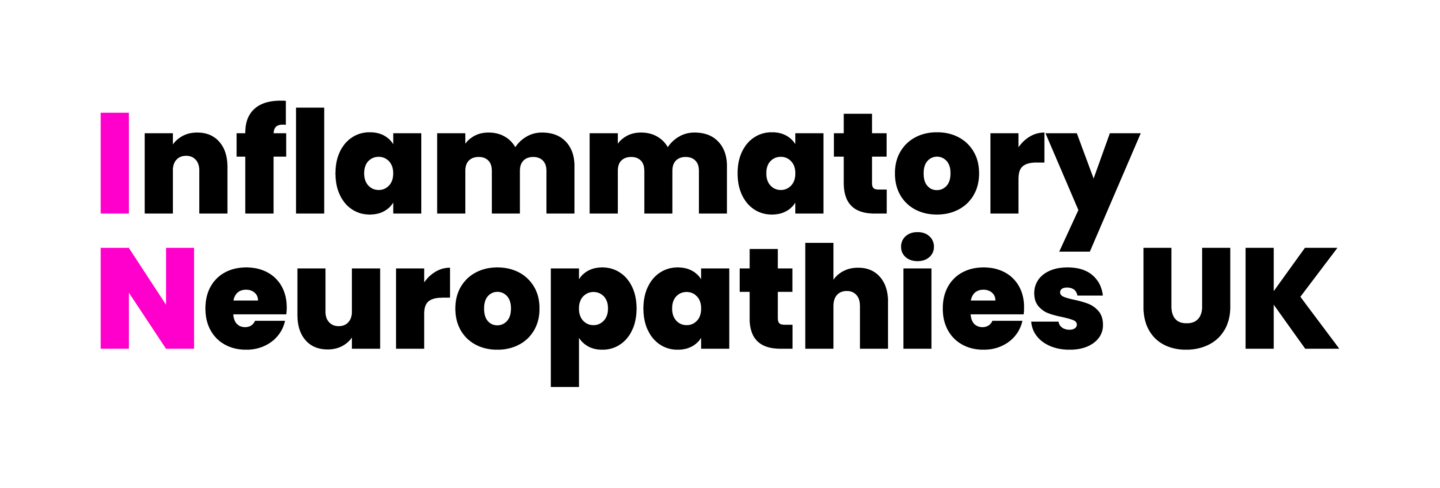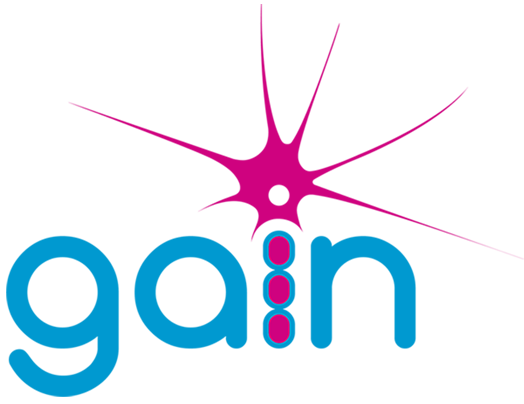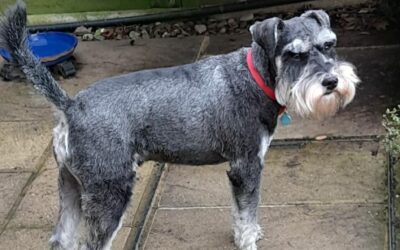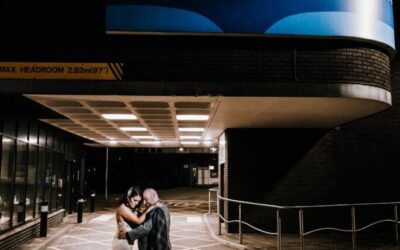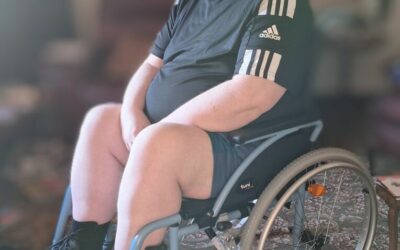In our latest newsletter, we shared an encouraging piece from Jon Shelton. Jon sent over a fantastic document but we didn’t have the space to print the full thing – you can find the unabridged copy here.
I’m not sure if the numbers have changed much since 2010 when I started researching GBS, but back then it was estimated that around 20% of people with GBS had “residual issues”. I consider myself to be in this group. Thankfully I am much better than when I was first diagnosed on 14th September 2009 (when I was 48) but the disease still plays a part in my daily life and I am in no doubt that it will continue to do so. On the plus side, I doesn’t stop me doing much, unless I forget I’ve got it and try to, for example, kick a football and end up in a heap on the floor….And yes, I have actually done this, and believe it or not, on more than one occasion.
I have written a number of articles over the years for GAIN in terms of both recovering and volunteering so I thought it might be interesting for the “20% ers” to have some feedback 15 years down the line.
I reckon I had a pretty bad dose of AMAN, I was initially paralysed from the neck down and lost 2 stone in weight (sadly all muscle). I had two lots of immunoglobulins, plasmapheresis and an experimental drug which kills off the immune system in an attempt to rid the body of any remaining unwanted antibodies. Unfortunately, none of this made any improvement in the short term so I was transferred from the excellent Walton Centre in Liverpool to the Robert Jones and Agnes Hunt Orthopaedic hospital in Gobowen (1mile from where our home was at the time) after 8 weeks where I spent two and a half months before moving back home where we had carers coming into our home for a year to help me with dressing, washing, feeding and taking me to the hospital for treatment. At no point did I need to be ventilated.
My recovery was slow and gradual, the body slowly healing neurologically from the inside out, so the extremities are the last thing to start working again (if they ever do) so it was a case of doing exercises that I was able to whilst we waited for other parts of my body to switch back on. Swimming played a massive part and from about 6 months in my weeks was made up of three visit to the hospital gym, one neurological swimming session, at least 2 swimming sessions with other patients in the orthopaedic pool, 2/3 physiotherapy sessions and 2/3 sessions in occupational therapy and in their excellent on-site workshop, helped throughout by my amazing carers from Allenby Douglas in Oswestry.
I have always found quantifying recovery in GBS very difficult. People, with the best intentions, still ask me to this day as a percentage, how would I mark myself vs how I was before, but that is too simplistic. 15 years on I would say that my body is back to how it was before (certainly in terms of neurological function) from the inside out to both my elbows and knees. Thereafter I have alot of functionality (as far as the NHS is concerned I no longer have any disabilities – when I was discharged from the RJAH as an inpatient and transferred home, I had the highest level of disability possible) but this is where the weird stuff starts….
I am right handed and from a fairly early stage it was apparent that I had left foot drop which causes me to fall over sometimes as I trip up. My right big toe works OK but my four other toes won’t lift up. The big toe is strong enough to lift my right foot up and clear the ground with a shoe to allow a normal walking motion. On the left, it is the opposite, my big toe doesn’t lift up but my other 4 toes do. As a result I cannot lift my left foot up enough to clear the ground and achieve a normal walking motion. Over the years we have tried many different things to try to improve it and I am incredibly close to achieving normal walking and in fact some people have said they don’t notice any difference. So I don’t use any walking aids, but my left foot is inclined to catch on things and I trip, particularly if I’m tired. I reckon I catch my foot a couple of times a month and about once a quarter do the full “Tom Daley” into whatever happens to be in my path, which after 15 years does get a bit annoying. I have competed in many different sports over the years, including judo, which has helped massively with reducing damage from my regular journeys into orbit and I was taught to fall with minimum damage.
My hands, thankfully have more dexterity than my feet. They have lost a lot of muscle, which as my OT explained to me, we develop when we are growing, so whilst they have recovered substantially they will not get back to how they were before. My grip and range of movement is decent but my two little fingers will not move to “join” the others which mean they tend to catch on things every now and again. My thumbs work well but don’t lift up fully, so if I try to give the “Thumbs up” sign it looks very much like a clenched fist, which isn’t the best look when one of your kids has done something good on the football pitch…. J
When I was in hospital, staring at the ceiling, I tried to come up with achievements that would mean I had “recovered “. Back playing sports was the obvious one as they require all the functions I had lost, but more on that later. One of the things that I did decide would be a very good marker, would be driving again but as I found out, you don’t need full dexterity and indeed balance to drive. Within a year of getting ill, I had got myself into a go kart at our local circuit (getting out was something of a challenge J ) and was merrily driving around. Later that day I tried the controls in my wife’s car and found I could work them OK and within a month I had been re-assessed and had my car driving licence back again. And yet I was still falling over more than I do today and still couldn’t open a tin of beer…. 😉
Two years on from getting Ill I got my motorbike license back again and bought an Aprilia 850cc (which had an automatic gearbox so nothing for my left foot to do). For my 60th birthday I changed it for a Triumph Bonneville America LT 865cc, with a kick down gearshift, which I bought in the UK and then via the ferry to Santander and then rode it across Spain to where we now live in Murcia. The only problem I have is with my left hand getting tired using the clutch in heavy traffic. Early on I decided that if I did get better I was going to “live” and get out and do stuff….
I have always played and enjoyed sports to a decent level, football being my favourite but played all racquet sports and occasional golf. In fact I was playing in an over 35’s football league match the week before I contracted GBS. This stood me in good stead for all the swimming and gym work needed to build up my muscles again. Although I couldn’t see me getting back to playing football and racquet sports again as I didn’t have the balance and ability to move quickly without falling over, I did concentrate on what I could, which initially was swimming. I started trying to jog again, which actually was easier than walking but I didn’t have the strength in my calves so made for a somewhat untidy spectacle, but it worked, until my left foot got tired got caught on something and then I was getting acquainted with the tarmac. However, running was the best thing I could do for getting my anaerobic fitness back and it did work quite well, albeit at the expense of the skin on my knees. I am still in contact with some of the people from the RJAH and we still chuckle about the time that my physiotherapist had to be called to the gym to sign me off to finish my session as my knees were bleeding J, form running the previous day. As my swimming improved I asked one of the staff in the RJAH, a lovely lady called Alex Jones, which gave everyone enormous encouragement if she had any ideas about a swimming challenge that I could work towards. So she suggested the Lake Bala swim, and said if I was up for it she’d swim it with me. I researched it and the main swim is 10K which I reckoned was too much, but they do “shorter” swims and given how my progress was going, I reckoned I could build up to 120 lengths of our 25m pool so we joined the British Long Distance Swimming Association and in July 2011 we completed their 3K official race in Lake Bala, no wet suits allowed and it was friggin’ cold, in 1 hour 35 minutes, and we weren’t last!!!
Around this time my son, Tom, who would have been around 10 had starting triathlon and was pretty good at it so I used to take him to the various events. His home club, Oswestry Triathlon Club, were great and used to run their own adult sprint triathlon so we helped with the lane counting for the swimming. I thought it would be mega fit athletes, and yes there were plenty of those, but I was taken aback by how many people had just entered as a personal challenge and seeing some of them struggling with the swim, a quick check on my old mountain bike at home and I started training in earnest. My biggest issue was the run. A sprint triathlon is typically a 400m swim, a 15 mile bike ride and then a 5K run. Prior to getting I’ll, I could run 5K in 22 minutes. Since then the best I have managed is 37 minutes. However, I hadn’t done any serious swimming since being at school and never any competitive cycling. The training was the best thing for me, the three elements focused on the whole body and the best part was the variety of training. So over the years I have completed 6 sprint triathlons, including Shrewsbury, Newtown (twice) and the Gog triathlon. I have also competed in a couple of 10K runs, best time being 1 hour 13 minutes vs my PB of 38 minutes in my twenties .
Of the three elements I found the running most difficult due to my foot drop and I simply couldn’t improve my time. It was also frustrating and I had definite benchmarks of what I could do before, and there is no easy way to put this, but I am seriously slow.
However….The swim and the bike I was pretty good at, to the point I could compete with “normal” people at these, which gave me great encouragement and confidence. Because of my dexterity issues I was also very slow in transition. The camaraderie at triathlon’s is brilliant and everyone encourages everyone else and most like a laugh. Most of my events used indoor swimming pools, so you would swim in groups (or waves based on previous event times) so you would have a small race within a race with the people in your wave. So I would usually win the swim in my wave, then they would all come past me as I was messing around in transition, then I would pass them all on the bike and be quite well in front as I started the run. Then quite a few of them would come past me on the run, which made for some quite good banter on the way around and afterwards. I also entered various cycling events up to 80 miles and regularly did a time trial race with Tom of 10 miles.
What I didn’t realise, and I am assuming this, is that although I wasn’t improving my times much, which is what I was focussing on, my body was improving, maybe not in terms of neurological re-growth as such but in terms of re-educating things, but as always with GBS the changes are almost imperceptible. Or maybe it was…
The triathlon period I have just been describing would be approximately 3-5 years after getting the disease.
So having said all that, there have been two significant “overnight” events over the last 15 years when it comes to sport, both of which I never thought I would be to do again.
The first was @5 years in when I picked up a golf club again. My grip (being extremities) was one of the areas where I was a long way off where I was before and this was one of the reasons why I hadn’t tried golf before. However, I tried gently swinging a club in the garden one afternoon to see if I could grip it and not fall over with the movement, neither of which I thought would be successful. To my amazement it didn’t go too badly and so I tried hitting a couple of old golf balls into the field behind where we live. It went well enough for me to go to the driving range and shortly afterwards I was back on the course again and playing regularly (at this juncture I should add I was never a particularly good golfer, but I enjoyed playing the game).
The biggest and most significant development here was that I was now doing a sport with a very high level of skill, balance and co-ordination involved whereas the other sports I had been doing up to this point were more endurance and fitness based and as long as I could remain on my feet (or in the saddle) I could partake. This was a game changer and meant I could join a club, get an official handicap (28 to start with and moved down over the years to 24 which I was delighted with) enter competitions and play competitively with friends and colleagues from work. It was also great for self confidence.
I took early retirement from work in 2016 and then worked for the following 5 years on a part time basis at a local college which gave me the school holidays off. My wife and I had always planned to retire early and perhaps try living in a different country so in early 2017 we bought the house, where we now live full time, on a golf resort in Murcia. When we first moved over we noticed what we thought were tennis courts on the resort, but on further examination these turned out to be padel tennis courts, a game of which we had never heard. We went and watched them playing and thought it looked interesting. We’d both played alot of racquet sports in the past so we thought we’d give it a go, mainly for Mel but I thought I might be able to just hit the ball back to her. Interestingly, we had tried tennis on holiday in Turkey about 5 years earlier but I was hopeless. I could hit the ball a bit but couldn’t serve or hit overheads properly.
Padel tennis is on a much smaller court and is a cross between tennis and squash and the court is completely surrounded so you can hit the ball off the walls. However, as with tennis, there is quite alot of movement involved to get to the ball. The biggest difference compared to golf was that the ball is moving and your opponent is trying to hit the ball past you. We thought we’d try it (primarily for Mel) as we thought that with my movement and balance issues, surrounded by unforgiving surfaces on all sides, it would probably end in tears for me if I started to charge about.
We borrowed some racquets and it went well. The other thing with Padel is that it is pretty much always played as doubles, which cuts down the movement required and even more so as it is on a small court. So as we travelled backwards and forwards to Spain over the next few years, we bought some racquets and just played with our two kids, Tom and our older daughter, Jen, when they visited us.
The more time we spent in Spain, especially in the winters, the more we liked it and with the kids settled in the UK, we sold up in the UK and moved out here full time at the end of 2020, right in the middle of covid, travelling when the various international windows allowed. At the same time we both retired full time.
The padel went from strength to strength and we both play competitively at two clubs and both have official rankings to allowing us to play in leagues and enter competitions. I have to adapt my game to allow for my restrictions (much to the Spanish coach’s frustration as they are obsessed with playing the game in a certain way), but if I charged about in the way that they would like, all I can say is that it wouldn’t end well. I play 2 to 3 times a week and genuinely feel I am still improving, and more to the point I really enjoy it and would recommend Padel Tennis to anyone.
So 15 years on, at the grand old age of 63, in terms of racquet sports, this is where I reckon I am in terms of competing with fully “able bodied” players :
- Table tennis : can compete competitively
- Pickle Ball : not played it but from what I have seen I reckon I could compete
- Padel Tennis : can compete (graded at level 5 in Murcia region, it might be the lowest level, but I’m taking it!!! ;_). In reality, it’s a decent standard and some people with never get there….
- Badminton : cannot compete
- Squash : cannot compete
- Tennis : cannot compete
So the point is this : 3 years after getting GBS, I could not have dreamed of being able to properly compete at golf and padel tennis, and yet we are told that GBS improvements are usually in the first couple of years. During the intervening 12 years :
Have I improved : definitely
Have I improved quickly : no, almost immeasurably in the short to medium term, but taken over the period of 12 years the improvement is irrefutable.
So what is this down to : Ah, the difficult bit….
The neurologists would have to comment on whether, over a longer period of time, nerve regeneration can take place.
It could be I am just getting a bit fitter or retraining my body. The muscle memory is definitely still there but as I will know (ref football) if the muscles are not working and in sufficient balance, I’m on my backside again. Has continuously sending neurological messages, through regular exercise and physical and balance challenges, woken anything up?
Has my mental wellbeing and lifestyle improved as a result of all this : without any doubt.
And of course the age old conundrum of GBS, it effects us all differently.
In conclusion, I am convinced about my improvement over the last 12 years, especially as I am comparing 51 year old me with the 63 year old me. Even more so, as over that period a significant fall off in physical condition would mean I really should be getting worse….If you are able, I would recommend doing as much physical exercise as possible, sensibly and within your limits, if so I cannot see any downside. I regularly do pilates, which is a really challenge on balance but great for stretching and core strength, I am convinced there is something for everyone out there. And it is great socially.
In my case, I would table that the evidence is there, and beyond reasonable doubt for long term improvement.
The cause : food for thought 😉
Never give up.
Jon Shelton
PS : I have a degree in chemistry and in my first year at Nottingham University studied the neurological system as a module. Since contracting GBS I have studied the disease extensively, so my observations and conclusions are not based upon a whim. Sadly, this may be unique to me, but if not?
